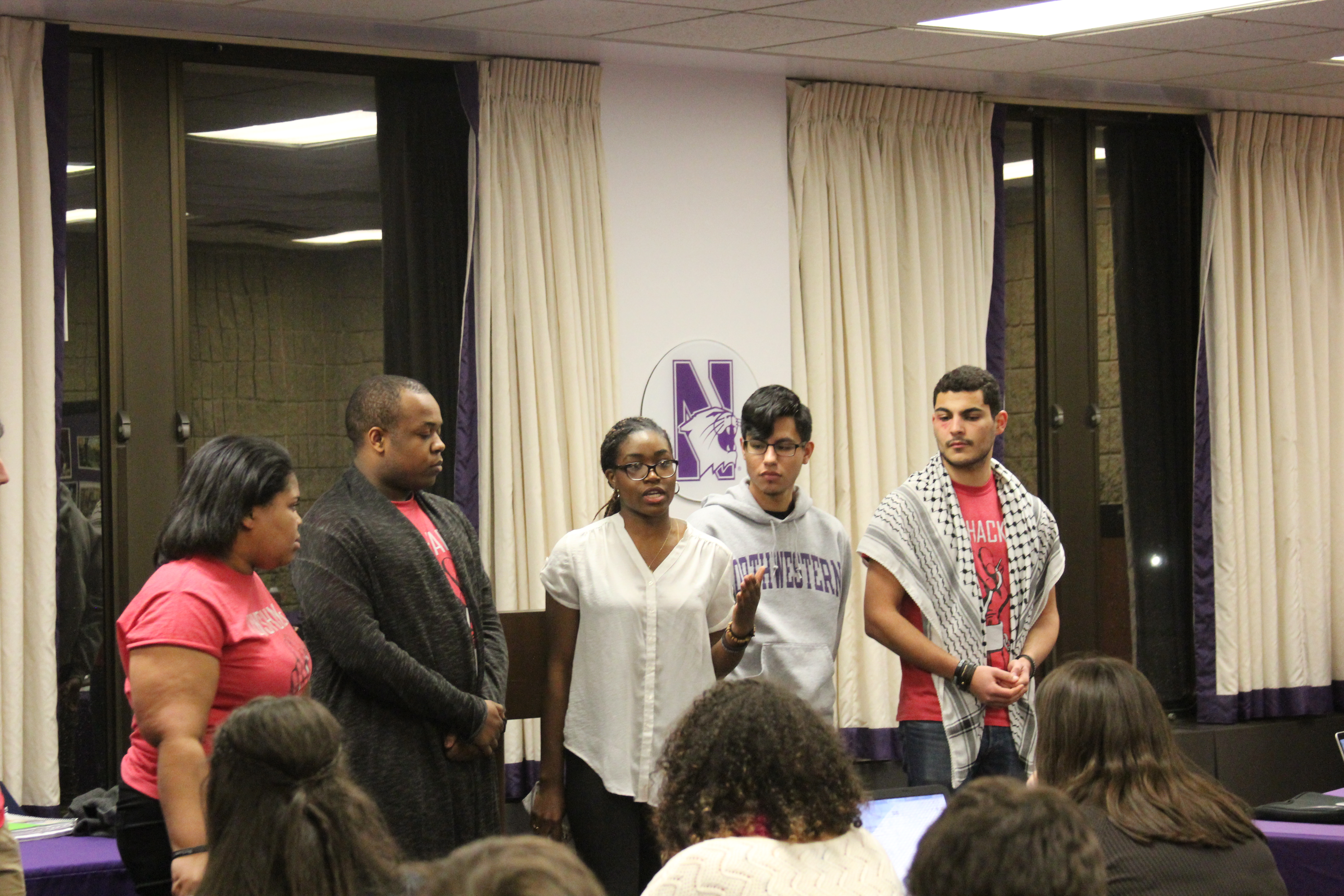ASG dragged on for two hours as students questioned student government and Northwestern’s commitment to marginalized students on campus.
Students in red Unshackle NU shirts arrived early, grabbing extra chairs or standing in the back when space filled up. After four weeks of guest lecturers, panelists and open discussions on the prison-industrial complex, Unshackle NU formally submitted a resolution for Northwestern to divest from private prisons companies, namely G4S, CCA and the GEO Group. Presenting statistics showing how these companies profit off the imprisonment and abuse of African Americans, immigrants and LGBTQ people of color, Unshackle NU questioned why an educational institution was invested in these companies.
“If this university really cares about Black and Brown communities, then they shouldn’t be invested in systems that continue to oppress them around the world,” Jessica Onyi said.
In January, Northwestern Chief Investment Officer William H. McLean told NBN that the University was not invested in CCA, had “less than a million” invested in G4S and that he was not aware of any private prison companies they were invested in.
The resolution, which drew few questions, will be voted on next week. If passed, it would be the third divestment resolution ASG has passed in almost as many years, after the body supported a campaign to divest from the fossil fuel industry in 2013 and a campaign to divest from six companies operating in the West Bank in 2015.
Although the administration and board of trustees have refused to comply with the two non-binding resolutions, Unshackle NU member and Medill senior Matthew Wright noted that in 1985, Northwestern partially divested from Apartheid in South Africa.
Other universities have been more amenable to divesting from private prisons than from fossil fuels or the West Bank. Last year, both Columbia University and the University of California divested millions of dollars from private prisons. No major university has divested from fossil fuels or Israel.
ASG President Noah Star later introduced legislation to form an independent committee to devise recommendations for substantive representation reform. This comes a week after discussion on proposed constitutional changes that would have given greater representation to student groups and multicultural greek organizations devolved into a four hour debate and a stalemate vote. One ASG senator went as far to describe it as “last week’s debacle.”
Star's committee will include president, executive vice president and student activities vice president – the only members of ASG voted on by the entire student body – along with the vice president of accessibility and inclusion and three senators elected by the rest of ASG.
The lack of senators on the committee drew backlash from members who argued that the senate should have greater say on the committe. But, after an amendment to expand the committee to include five senators failed, Star’s legislation passed.
“I don’t think the senate should have a say in a body that will suggest its own reform,” Star said.
After nominating senators and pressing them on how they defined representation, ASG voted in Weinberg sophomore Nehaarika Mulukutla, Weinberg senior Amanda Walsh and Weinberg junior Anna Distefano to the committee.
For short-term reform, the authors of last week’s much-debated representation reform bill introduced new legislation for more modest measures. Instead of the Greek system going from 12 to eight seats, they would get 10 – three each for the Inter-fraternity Council and and the Panhellenic Association and two each for the multicultural Greek systems. Off-campus representation would be reduced to five seats instead of to six. On-campus residential representation would remain the same at 15 seats, and student groups would still increase from 15 to 20 states. These measures will be voted on next week.
